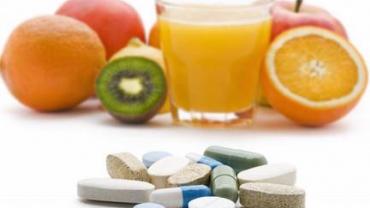
Every year one in three older adults suffer an injury related to falls. In fact falls are the leading cause of injuries for older Americans and many times lead to disability. There is significant research that demonstrates vitamin D’s role in maintaining muscle and bone integrity and strength. However there are also some studies suggesting vitamin D helps to reduce the risk of falls.
The elderly population is more susceptible to a vitamin D deficiency due to poor dietary intake and nutrition-related conditions. Also they typically have decreased exposure to sunlight further increasing their risk for low vitamin D levels which may possibly lead to more falls. Researchers at Wake Forest Baptist Medical Center evaluated this by delivering a vitamin D supplement through a Meals-on-Wheels (MOW) program in order to improve vitamin D levels and reduce their risk of falls.
The study has been published this month (August 2015) in the Journal of the American Geriatrics Society. Participants in the Meals-on-Wheels program were recruited to take part in a five-month single-blind randomized trial.
In this study 68 participants received either a monthly vitamin D supplement of 100000 IU or placebo supplement with their meal. The study included the participants' history of falls and their fear of falling. In addition blood tests were done at the beginning and at end of the trial assessing 25-OH vitamin D and a monthly diary recording falls during the trial period. At the beginning of this pilot study more than half of the participants had insufficient vitamin D levels (less than 20 ng/ml) and less than 25% had concentrations greater than 30 ng/ml.
The study showed that the monthly vitamin D supplement was effective in increasing the concentrations of vitamin D in the blood from insufficient to normal levels in all but one of the 34 participants and to optimal levels in all but five people. In addition people in the vitamin D group reported approximately 1/2 the falls compared to the control group.
There was also another study published this month in PharmacoEconomics evaluating the cost-effectiveness of interventions designed to prevent falls and fall-related injuries among older people living in residential aged care facilities. A model was developed according to their risk of falling and the risk of injury following a fall. The effectiveness of the interventions was derived from two reviews of randomized controlled trials for falls and fall-related injury prevention in residential aged care facilities.
In this study both vitamin D supplementation and medication review dominated ‘no intervention.’ These interventions were more effective and were also cost saving due to the healthcare costs avoided. Thus this model suggests that vitamin D supplementation is a cost-effective intervention that helps to reduce falls provide health benefits and reduce health care costs in older adults living in residential aged care facilities.
In addition a third study published last month in Osteoporosis International assessed the cost-effectiveness of vitamin D supplementation and exercise separately and combined in preventing medically attended falls resulting in injury among older women. In this study exercise was effective in reducing fall-related injuries among older women and vitamin D supplementation had a marginal additional benefit.
Vitamin D is important but as we know it is not the only key player. It is also important to assess calcium magnesium vitamin K and other trace minerals for deficiencies and support accordingly. There are several labs that can assess RBC minerals and fat-soluble vitamins. In addition a bone resorption assay should be considered. It’s a simple urine test which reflects present remodeling activity. Osteoporosis affects more than 40% of healthy women who are at risk of developing vertebral fractures as they age. This test is simple and cost-effective and allows you to routinely monitor bone resorption rates as well as the effectiveness of therapy.
By Michael Jurgelewicz DC DACBN DCBCN